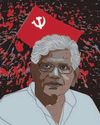Jallianwala Bagh Massacre Was Not An Isolated Incident. It Was Fully In Tune With The Logic Of Colonial Violence

On a wet March Monday, the Jallianwala Bagh complex is crowded. The narrow passage from where Brigadier General R.E.H. Dyer ordered firing is bubblegum pink. Women in their silk saris try to stem the rain with their scarves. Children run around. Selfie-crazed teenagers whip out their phones and smile, with the green expanse in the background. Families on an Amritsar darshan dutifully look at the bullet marks. The Eternal Flame flickers at the entrance.
A century after the massacre, Jallianwala Bagh still has the power to evoke emotions. In Britain, the House of Lords sat up on February 19, apparently for the first time, to discuss the massacre and the need for Britain to apologise. But, this demand for an apology is not new. The British queen’s visit to the site in 1999 and prime minister David Cameron’s visit in 2013 had seen the demand going high-pitched.
Closer home, the site and the Jallianwala Bagh Memorial Trust—the board that manages the site—have become a battleground for petty politics between the BJP and the Congress. The BJP, with its sheer majority, passed a bill in the Lok Sabha on February 13 to remove the permanent membership of the Congress president in the Trust. This move had prompted the Congress to accuse the government of “erasing history”. Jallianwala Bagh’s legacy and the efforts to control it will continue in the days to come.
Winston Churchill, the British secretary of war during 1919-1920, referred to the massacre as “a monstrous event... without precedent or parallel in the modern history of the empire”. But, Churchill maintained that it was an anomaly— Dyer was evil, not the empire.
Denne historien er fra April 21, 2019-utgaven av THE WEEK.
Start din 7-dagers gratis prøveperiode på Magzter GOLD for å få tilgang til tusenvis av utvalgte premiumhistorier og 9000+ magasiner og aviser.
Allerede abonnent ? Logg på
Denne historien er fra April 21, 2019-utgaven av THE WEEK.
Start din 7-dagers gratis prøveperiode på Magzter GOLD for å få tilgang til tusenvis av utvalgte premiumhistorier og 9000+ magasiner og aviser.
Allerede abonnent? Logg på

Themes Of Choice
As Savvy Investors Seek New Avenues, Thematic Mutual Funds Are Gaining Popularity

A golden girl
One of India's most formidable beauties passed away earlier this month. The odd thing is she would absolutely hate this obituary; she hated being written about and avoided publicity for all of her nine decades. Indira Aswani was 93 when she died. But anyone who encountered her, even briefly, was in such awe of her grace and poise, and one could not but remember her forever.

The interest in wine is growing delightfully in India
The renowned British wine writer and television presenter Jancis Robinson, 74, recently came to Delhi and Mumbai to reacquaint herself with India's wine industry. This was the Robinson's fourth visit to India; the last one was seven years ago. On this trip, Robinson and her husband, restaurateur Nicholas Lander, were hosted by the Taj Hotels and Sonal Holland, India's only Master of Wine.

United in the states
Indian-Americans coming together under the Democratic umbrella could get Harris over the line in key battlegrounds

COVER DRIVE
Usage-driven motor insurance policies offer several benefits

GDP as the only measure of progress is illogical
Dasho Karma Ura, one of the world's leading happiness experts, has guided Bhutan's unique gross national happiness (GNH) project. He uses empirical data to show that money cannot buy happiness in all circumstances, rather it is family and health that have the strongest positive effect on happiness. Excerpts from an interview:

India is not a controlling big brother
Prime Minister Tshering Tobgay considers India a benevolent elder sibling as the \"big brotherly attitude\" is happily missing from bilateral ties. He thinks the relationship shared by the two countries has become a model of friendship not just for the region, but for the entire world. \"India's attitude is definitely not of a big brother who is controlling and does not allow the little brother to blossom and grow,\" says Tobgay in an exclusive interview with THE WEEK.

Comrade with no foes
Lal Salaam, Comrade Yechury-you were quite a guy!

Pinning down saffron
In her first political bout, Vinesh Phogat rides on the anti-BJP sentiment across Haryana

MAKE IN MANIPUR
Home-made rockets and weapons from across the border are escalating the conflict